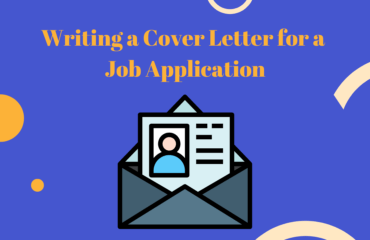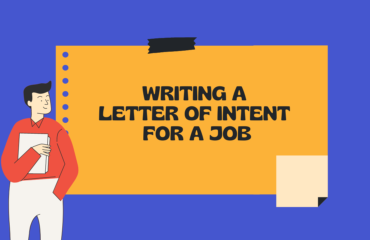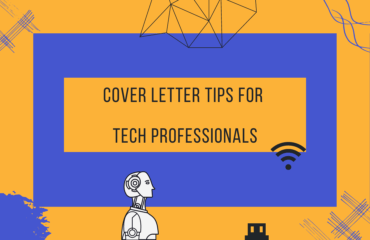Table of Contents
When you are competing against a large pool of applicants, staying ahead is a must. One of the best ways to distinguish yourself from the crowd is by complementing your resume with a well-written cover letter. As a matter of fact, a study revealed that 53% of employers favor candidates who include one in their applications. For this reason, maintaining an error-free and polished cover letter is imperative to ensure a competitive advantage. Below are the top common cover letter mistakes you need to avoid to create a good first impression.
1) Restating what’s already in the resume
When writing cover letters, most candidates tend to create a summarized version of their work history. Your resume is created for that purpose. Hence, rehashing your entire job history is unnecessary and will not help you differentiate yourself from the competition. Your cover letter is supposed to be a supplement to your resume, not a substitute.
Instead of restating your resume, create a compelling narrative that details your rationale for the application and expresses your enthusiasm and motivation for the job. Then, highlight the benefits you can deliver to your prospective employer. This increases your probability of advancing to the interview stage.
2) Using a generic cover letter
Although most candidates realize the importance of personal cover letters, they seldom consider customizing their narrative to fit the actual job. While a generic approach may seem time-efficient, it can be detrimental to your candidacy. Recruiters read hundreds of cover letters so it’s easy for them to determine when you’re using a generic one. As a result, you may be regarded as someone who is not genuinely interested in the job.
Tailoring a cover letter for each application can be a time-consuming process, but it does not have to be. We suggest creating a framework that can be used for a category of jobs and customizing the employer-specific information for each submission. For example, you are applying for a project management role. You can use the same framework for applying to similar vacancies and detail why the company is your employer of choice. This would enable you to save time customizing your cover letter without having to start from scratch for every submission.
3) Focusing too much on yourself
Cover letters are typically about you and your relevant accomplishments. Nonetheless, it is imperative to be strategic in presenting yourself as the best fit for the job to ensure you do not appear egotistical. This is not an impression you would want to have from a hiring manager. No employers would want to hire an arrogant person regardless of qualifications.
Your cover letter serves as your sales pitch to the recruiter. Instead of focusing too much on how great of a candidate you are, consider your prospective employer’s needs. Take the time to evaluate the job description and research the company. What are their challenges? How will the position help them solve their pain points? When you can connect and position your competencies as the remedy to your target employer’s needs, you are more likely to outshine other candidates.
4) Ignoring grammatical errors, misspellings, and typos
When you are applying to numerous jobs, mistakes can happen, including errors in grammar and spelling. While this may seem a minor issue, it can actually cost you an interview. In fact, a study showed that 70% of hiring managers dismiss a cover letter with a typo. Do not let these careless mistakes hamper your job application.
Proofreading your narrative before sending your cover letter is a must. Do not rely on writing assistance software alone. These applications can be helpful. However, it has limitations that can cause some errors to slip through. We highly recommend rereading your content. If you need some extra reassurance, you can ask a trusted friend or a professional to proofread your cover letter.
5) Making it too long
Some applicants tend to narrate their entire work history, making their cover letter unnecessarily long. If recruiters only spend 7.4 seconds reviewing resumes, how long do you think they will dedicate to reading your cover letter? For an apparent reason, your cover letter should be as concise as possible while still conveying your worth. Ideally, it should never exceed one page.
To ensure your cover letter remains succinct, maintain focus on details that are pertinent to the job. Each statement should optimally add value and showcase your skills as the best candidate for the position. Exclude narratives that don’t serve a purpose.
6) Not showing genuine interest in the job
When writing a cover letter, most candidates are commonly more inclined toward explicitly emphasizing their background, skills, and achievements. They miss adding enthusiasm to their narrative. If delivered correctly, your enthusiasm and genuine interest in the job can be a strong selling point. Employers commonly favor applicants who can get the job done and are motivated to put in the work necessary to achieve the set goals.
Stating that you have a keen interest in a job is not sufficient to distinguish yourself from the crowd. You need to frame your narrative in a way that speaks to how you would be a capable hire. Analyze the job description and research the company. Then, ask yourself, “What particular aspect of the role are you most excited about?”. Has there been a recent business expansion or restructuring you would be thrilled to contribute to? These will help create a foundation for communicating your motivation and viability as a candidate.
7) Oversharing personal details
There are various reasons why a candidate decides to pursue new opportunities. It can be due to a layoff, relocation, involuntary termination, or a desire for a new challenge in their career. Regardless of the rationale, your narrative does not need to go beyond its professional context. Any extraneous information will not add value to your candidacy and will only diminish the impact of your qualifications. Instead, concentrate on what you can bring to the table.
An error-free cover letter is a critical component of your application’s success. In today’s challenging job market, anything that sets you apart from the candidates you’re up against is an absolute must. This can help open the door to scoring an interview and ultimately landing your dream role.











